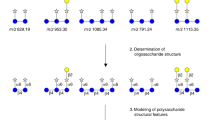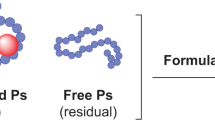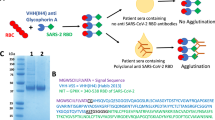Abstract
THE report by Gessler et al. 1 on the use of a completely substituted ethane (trichlorotrifluoro ethane, ‘Genetron 113’; obtained from the Division of Allied Dye and Chemical Corp., General Chemicals, Inc., New York) as a ‘deproteinizing’ agent in the purification of influenza virus, suggested to us that this solvent might have many uses. In particular, we were concerned with ‘deproteinizing’ bacterial cells with the consequent release of polysaccharides. In view of the observation that this solvent is not miscible with water and that pneumococcal poly-saccharide is soluble in water, the following experiment was performed.
This is a preview of subscription content, access via your institution
Access options
Subscribe to this journal
Receive 51 print issues and online access
$199.00 per year
only $3.90 per issue
Buy this article
- Purchase on Springer Link
- Instant access to full article PDF
Prices may be subject to local taxes which are calculated during checkout
Similar content being viewed by others
References
Gessler, A. E., Bender, C. E., and Parkinson, M. C., Trans. N.Y. Acad. Sci., 18, 701 (1956).
Kabat, E., and Mayer, M., “Experimental Immunochemistry” (C. C. Thomas, Springfield, 1948).
Author information
Authors and Affiliations
Rights and permissions
About this article
Cite this article
MARKOWITZ, A., HENDERSON, J. A Rapid and Specific Method for the Isolation of Pneumococcal Polysaccharide. Nature 181, 771–772 (1958). https://doi.org/10.1038/181771b0
Issue Date:
DOI: https://doi.org/10.1038/181771b0
This article is cited by
-
Antigens of Brucei Trypanosomes
Nature (1962)
-
Immunological Relationships between the Rat Glomerulus and Nephritogenic Streptococci
Nature (1960)
Comments
By submitting a comment you agree to abide by our Terms and Community Guidelines. If you find something abusive or that does not comply with our terms or guidelines please flag it as inappropriate.



